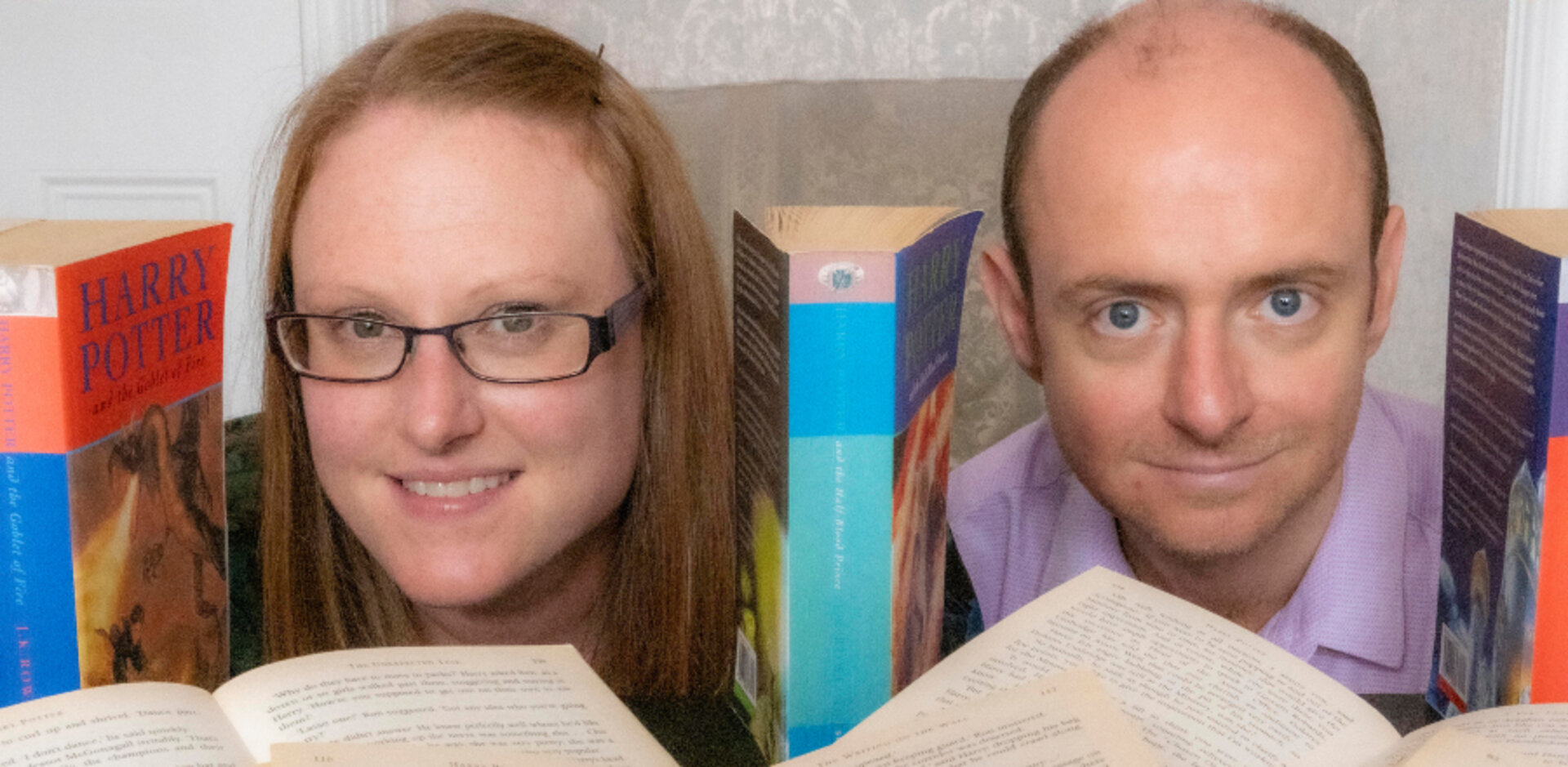Harry Potter psychology research proves public don’t need dumbed down

Words such as Muggle and Quidditch from Harry Potter fantasy novels have been used in an in-depth eye movement psychological study to find out how people react to unfamiliar language.
Husband and wife behavioural psychology researchers and avid Harry Potter fans, Dr Chris Hand from Glasgow Caledonian University (GCU) and Dr Joanne Ingram from the University of the West of Scotland (UWS), teamed up for a labour of love to produce their latest study.
The research entitled ‘Words from the wizarding world: Fictional words, context, and domain knowledge’ has just been published in the leading American Psychological Association (APA) Journal of Experimental Psychology. Results launch is just days after the 41st birthday of Harry Potter fictional character Hermione Granger on September 19.
A total of 32 Harry Potter fans and 22 non-fans were used in the experimental eye movement study with each reading 72 sentences, scientifically created by the researchers to capture the public’s responses to words such as Muggle, Hogwarts and Quidditch.
After hours of analysing raw data, the psychologists, whose research backgrounds are in words and language, discovered that most people can understand these specialist terms if used in the right context.
The study examined the processing of fictional words - specifically those appearing in the Harry Potter book series written by J.K. Rowling that feature the main character Harry Potter.
Researchers studied the eye movement behaviour of readers familiar or unfamiliar with the Harry Potter series when encountering fictional words from this series, either in supportive or unsupportive contexts.
Dr Hand explained: “Compared to big surveys this might not seem like a particularly big number of participants but for an experimental eye movement study, it is pretty massive because it takes over an hour to test each participant and then hours to go through the raw data because you are literally looking at every single eye movement that they make.
“The research is all about Harry Potter, and how fans and non-fans not just read the materials differently, but actually seem to store it in their brains differently. Our research has shown that even people who don’t have this super-duper level of expertise in a particular field, if you put that word in the right context people can process it and understand it.
“We are showing that yes, having this really strong specialist knowledge is great because you can process these specialist terms really well and it becomes as if it’s a real thing but similarly if you write the correct context surrounding that word – it doesn’t matter whether you’re talking about Harry Potter or medicine, COVID-19 or engineering.
“If we had started using medical terminology such as epidemiology before COVID-19 six or seven months ago, the public might have really struggled to understand what that meant but if you say epidemiologists are studying COVID that gives them the right context and illness frame. We did it with Harry Potter but the takeaway message is – with the right context everyone can understand these really specialist terms.
“This is important research because it helps us understand how to communicate public health information. The message is that if you have a technical word – don’t dumb down language, use the proper word and context because we are showing that it actually makes it easier to understand if you’ve got the right contextual information.
“So for things like public health information, economics, politics, medicine, training, education, and for GPs who are trying to communicate something to a patient, don’t just throw the word in without context or try to replace it with a simpler word.”
Dr Hand and Dr Ingram, who have been married for 12 years, have studied Harry Potter for years - reading all the books and watching the blockbuster movies. Their toddler son Eric is also a fan and has a Harry Potter nursery backpack.
Dr Ingram said: “We noticed that the wizardry words were starting to creep into everyday language. We started to wonder how this was affecting how people think and read. We wanted to know if people who are mega into these books, do they process things in the same way as a non-fan?
“We have been working on this research on and off for seven years. It was definitely worthwhile and fun. Now we have a great set of data which we can make use of again in future research and develop them. The next thing we want to look at is do people treat medical words in the same way as they treat Harry Potter words?”
The reasearch paper can be found here.
